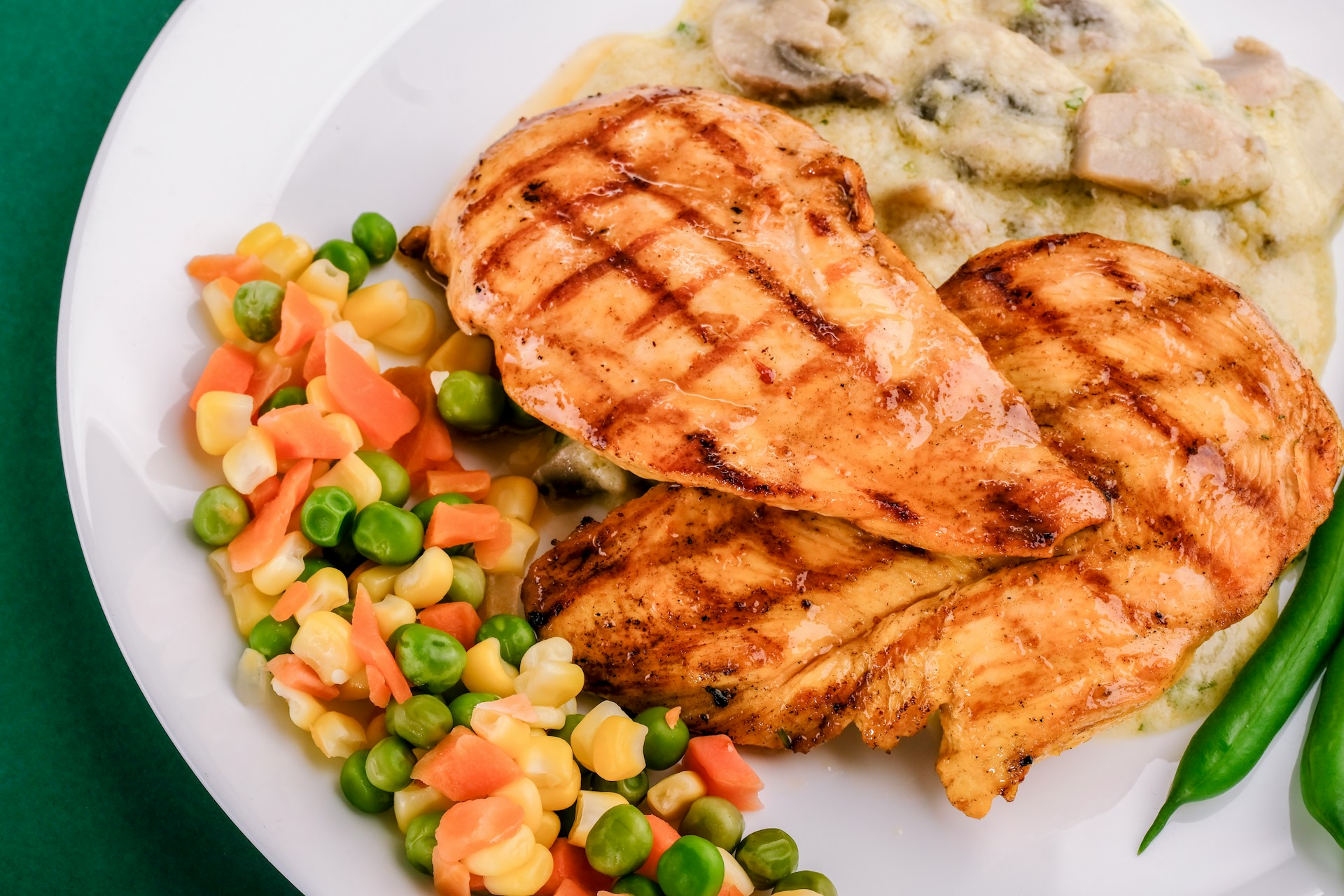Gastric sleeve surgery, also known as sleeve gastrectomy, is a surgical procedure that involves removing a portion of the stomach to reduce its size and limit the amount of food it can hold.
This is currently the most popular surgical bariatric tool for weight loss and has proven to be an effective solution for obesity. However, despite the success of this surgery, some patients may experience weight gain after gastric sleeve surgery.
In this blog post, we will consider some of the reasons why people gain weight after undergoing gastric sleeve surgery and what can be done to correct it.
{{cta_button}}
What Is Involved In Gastric Sleeve Surgery?
To understand some of the reasons why patients can regain weight after gastric sleeve surgery, let's look at the basics of the surgical procedure.
Gastric sleeve surgery results in a reduction in the size of the patient's stomach. The surgeon cuts away and removes about 75% of the existing stomach tissue and uses surgical staples to secure the edges of the remaining stomach tissue together.
The reduced stomach size helps patients control the amount they are able to eat and also helps them feel full and satisfied longer after eating.
What Can Cause Gastric Sleeve Weight Regain?
A large percentage of gastric sleeve patients regain weight due to various factors, and this can be a frustrating and challenging problem, negatively impacting their physical and emotional well-being. Some of the reasons that can contribute to weight gain after gastric sleeve include:
Inadequate dietary changes
After having gastric sleeve surgery, patients have to make considerable dietary adjustments in order to promote their weight loss objectives. The smaller size of the stomach restricts the quantity of food that can be eaten, which means it is essential to consume healthy, nutrient-dense foods that provide the body with the nutrients it needs. However, some patients may have trouble sticking to these dietary modifications, and as a result, they may eat unhealthy foods or eat more than they need, resulting in weight gain.
Stretched stomach
Over time, after gastric sleeve surgery, the smaller stomach pouch might stretch, increasing its capacity and allowing patients to eat more. Overeating, drinking beverages that are carbonated, and not giving your stomach enough time to rest in between meals can all contribute to this condition. Regaining lost weight after gastric sleeve surgery is possible if the stomach is stretched beyond its surgically reduced size, negating the restrictive nature of the initial procedure.
Hormonal changes
Gastric sleeve surgery can affect the levels of hormones that regulate appetite, such as ghrelin, leptin, and peptide YY. These hormones can cause the patient to feel hungry more frequently or to feel full more quickly. However, hormonal changes can fluctuate, which can result in increased appetite and cravings for high-calorie foods, leading to weight gain.
Lack of physical activity
Maintaining weight loss after gastric sleeve surgery requires regular exercise. Weight regain can occur in patients who do not regularly engage in physical activity, which causes their metabolic rate to slow down.
Emotional eating
Obesity is often associated with emotional well-being as individuals may turn to food for comfort and stress relief. If a patient has a history of emotional eating, they may regain weight after gastric sleeve surgery if this underlying issue is not addressed. Psychological support and counseling may be necessary to help patients overcome emotional aspects that promote weight gain after gastric sleeve surgery.
How To Lose Weight After Regain From Gastric Sleeve
Losing weight after regaining it following gastric sleeve surgery can be challenging but is achievable. If you regain weight after a gastric sleeve, it is important to first identify the underlying causes. This may involve a thorough evaluation of your diet, exercise routine, and psychological well-being. Once the causes of weight gain have been identified, one or more of the following strategies can be used to get weight loss back on track:
- Evaluate your diet: Evaluate your current eating habits and identify areas where you can make improvements. Focus on consuming lean proteins, vegetables, fruits, and whole grains while limiting processed and high-calorie foods. Work with a registered dietitian to develop a personalized nutrition plan that meets your dietary needs and weight-loss goals.
- Increase physical activity: Regular exercise can help you burn more calories, increase your metabolism, and promote weight loss. Incorporate physical activity into your daily routine, such as taking brisk walks, joining a gym, or participating in a fitness class. Additionally, making slight changes in your normal routine, such as parking further away from the entrance of a store or taking a few flights of stairs instead of the elevator, can help burn extra calories without requiring a significant time commitment.
- Review your lifestyle. After gastric sleeve surgery, your weight loss team provides you with specific dietary and lifestyle recommendations to support your weight loss goals. Review these guidelines and ensure that you are adhering to them to maximize weight loss and prevent weight regain. This may include removing temptation, such as not buying or keeping unhealthy food in the house, and avoiding scenarios that would make it impossible for you to stick to behaviors that support a healthy lifestyle.
- Seek professional support: Consider working with a healthcare provider, registered dietitian, or psychologist to help you address any underlying psychological or emotional factors that may be contributing to weight regain. You may also benefit from in-person or virtual support groups of others on similar weight loss journeys who can provide support and accountability.
- Gastric Sleeve Revision: In many cases, an endoscopic gastric sleeve revision procedure can correct alterations that have occurred since the original surgery that has removed its former restrictive capabilities. In severe cases, undergoing a surgical conversion to a gastric bypass or duodenal switch may be necessary to address weight regain.
{{cta_small}}
Who Can Help Me With Weight Regain After Gastric Sleeve Surgery?
Weight gain after gastric sleeve surgery is not uncommon, and there are effective strategies available to address it. Working closely with a doctor who is an expert in obesity management can help you achieve successful long-term weight management. Additionally, a doctor who is also an expert in endoscopy can offer a comprehensive treatment approach, providing both medical management and endoscopic interventions to help you achieve your weight loss goals.
Dr. Steven Batash is an expert in obesity medicine and, as a board-certified gastroenterologist, has extensive experience with minimally invasive endoscopic bariatric procedures. These weight loss procedures include the endoscopic gastric sleeve revision. The Resculpt procedure involves no incisions, fewer complications, and quicker recovery times compared to traditional surgery.
If you have had previous gastric sleeve surgery and find that you have gained weight or have plateaued in your weight loss efforts, there is help available to you. The knowledgeable team of professionals at Batash Endoscopic Weight Loss Center in NYC offers a non-surgical procedure that is safe and effective to address gastric sleeve weight regain.
ReSculpt Can Help Restore Your Smaller Stomach Size
Resculpt is a relatively quick procedure that can restore the restrictive capability of your original gastric sleeve procedure. It is performed as an outpatient procedure, so it does not require a hospital stay, and most patients recover quickly.
Addressing weight regain after gastric sleeve surgery requires patience, commitment, and dedication to making sustainable lifestyle changes. With some professional help, support, lifestyle coaching, and a comprehensive plan in place, you can achieve sustainable weight loss and improve your overall health and well-being.
Contact Batash Endoscopic Weight Loss Center today for an appointment and speak to us about how we can help you get your weight loss journey going in the right direction again.
{{cta_button}}








